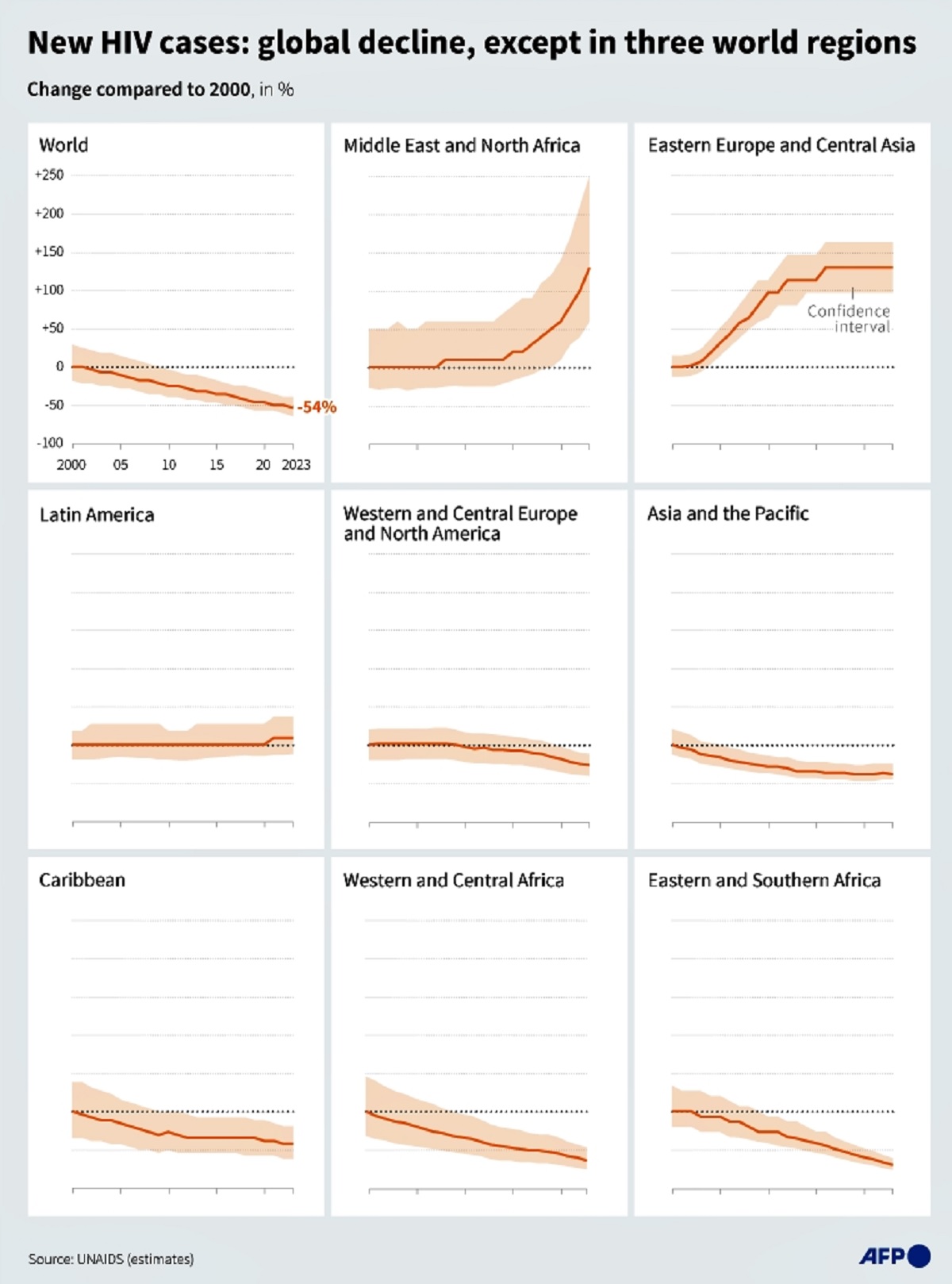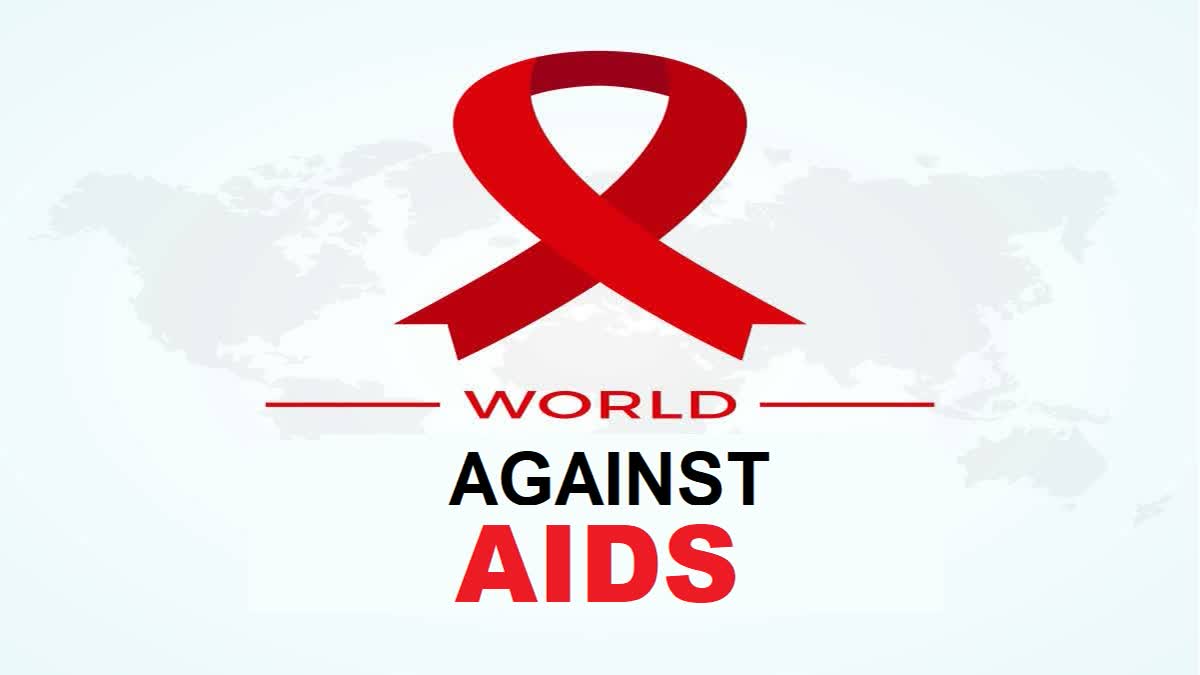Geneva: The latest report by UNAIDS highlights some blend of encouragement and worry for the government across the world. The AIDS epidemic has shown a significant decline with fewer infections and deaths reported over the years, while the report pointed towards some shortfalls in achieving the target to end AIDS as a public health threat by 2030.
It says at least 9.3 million people living with HIV were still not receiving antiretroviral therapy in 2023 and people with newly acquired HIV were 1.3 million. Similarly, at least 630,000 people died of AIDS-related illnesses despite progress towards the eradication goal.
“Although this represents a halving of fatalities—from 1.3 million in 2010 and a 69% decrease from the peak of 2.1 million in 2004—these 630,000 people suffered preventable deaths, and their lives have tragically been cut short,” reads the report.
“In at least 28 countries, the number of new HIV infections is on the rise, and a growing resource gap imperils the important progress made to date in the global HIV response,” it says. Sub-Saharan Africa—home to two-thirds of all people living with HIV globally—remains “the hardest-hit region,” it claims.

Executive Director of UNAIDS, Winnie Byanyima, says that human rights violations were preventing the world from ending AIDS. “When girls are denied education; when there is impunity for gender-based violence; when people can be arrested for who they are or who they love; when a visit to health services is dangerous for people because of the community they are from—the result is that people are blocked from being able to access HIV services that are essential to save their lives and to end the AIDS pandemic," he says during the release of the report on Tuesday.
Byanyima stresses the need to address the unreasonable and preventable impact of HIV on certain groups like young women and girls. “Every day in 2023, 570 young women and girls aged between 15 and 24 acquired HIV. In at least 22 countries in eastern and southern Africa, women and girls of this age group are three times more likely to be living with HIV than their male peers,” he says.
The report calls for prioritising HIV prevention and treatment in the social and financial outline of every country to encourage investment. “Investment in women-led networks and movements is needed, along with meaningful engagement and leadership of women, girls, and gender-diverse people in all aspects of decision-making regarding HIV, sexual and reproductive health and rights, and gender-based violence,” it states.
“Towards the goal of ending AIDS as a public health threat, investments are needed in initiatives to educate young people regarding the benefits and risks of digital technologies and how best to navigate a world that is increasingly online,” it adds.
Alexandra Calmy, HIV lead at the University Hospitals of Geneva, said that medical tools that save lives couldn’t be treated merely as commodities. “The revolutionary therapeutic and preventive options currently being developed must be made accessible without delay to achieve universal reach," he said during the USAIDS event.
World AIDS Day is being observed on December 1 with the UNAIDS report catalysing the urgent change needed to increase progress in the fight against AIDS.
“We know the pathway to building a society in which we all thrive," said Jeanne Gapiya-Niyonzima, founder of ANSS, and the first person in Burundi to publicly announce that they were living with HIV. “If the world wants to end AIDS as a public health threat, it needs to protect the rights of every person.”
Read More



